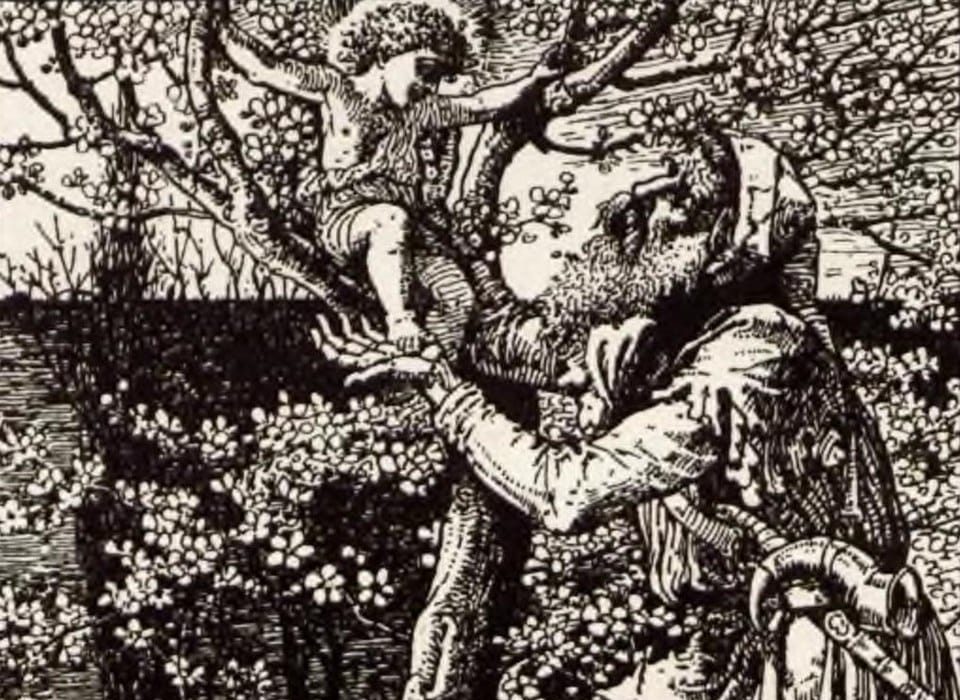“Yet what I felt of dread was no ordinary ghostly fear. It was infinitely greater, stranger, and seemed to arise from some dim ancestral sense of terror more profoundly disturbing than anything I had known or dreamed of. “ — “The Willows” by Algernon Blackwood
The thought of something moving in the night without your knowledge is a terrifying proposition, especially when natures involved. In the story “The Willows” by Algernon Blackwood, we get a feel for the author’s style and interests. Blackwood himself was a British writer who published strange tales and short-story collections, including The Empty House (1906) and John Silence (1908).
Today’s post is about “The Willows,” which is a novella (a very short novel), and tells a terrifying tale of a visit to a strange, haunting island where things aren’t as they seem.
Algernon Blackwood | Author of “The Willows”

Summary
Blackwood’s “The Willows” follows two friends, the narrator and the Swede, canoeing on the Danube river. A strong current takes them to a secluded area, where they rest on an island.
In the narrator’s reflection, he finds it to be a strange island. “‘Some essence emanated from them (willows) that besieged the heart. A sense of awe awakened, true, but of awe touched somewhere by vague terror” (Blackwood). The willows haunt the narrator as they are everywhere along the river and soon they find themselves seeking firewood and comfort.
Two occurrences happen at this point. Firstly, they see a strange otter-like creature swimming in the water, its body turning over and over. Secondly, they see a passing shipman, who warns them that there is danger ahead, but his warning falls on deaf ears. Both men continue on their way.
On the island, they rest for the evening and are witness to many strange things that include bizarre shapes rising from the willows into the sky and strange footfall sounds. Additionally–and most shocking of all–the willows have changed locations. Each one has moved to a new spot.
In the morning, they find their boat tampered with, as there is a missing oar and damage to the hull. They also find bread missing and a strange chiming noise echoes from all around them. Their patience wears thin for each other. On the second night, strange forces assail them again. The Swede attempts to sacrifice himself for the island’s spirits. It’s a grim scene indeed.
Luckily (or unluckily) another random person caught in the night sacrifices themselves first and the two friends are free from the island’s grasp. As they watch, the river pulls the corpse in, and the body turns over and over again. Both men think of the otter-like creature they saw in the river days before.
Analysis
Blackwood’s story is a classic Gothic-horror story. Therefore, the horror slowly builds as each strange occurrence amounts to more and more horror. While I spoiled the ending above, reading the entire story is a different matter. Blackwood’s descriptions are on point, and both evenings that the men spend in the wild are truly eerie.
Furthermore, Blackwood, who wrote mystery and supernatural stories, has an amazing ability to shock and scare readers with his verbiage alone. The willows cause fear, but what it is isn’t exactly clear. Blackwood balances this knowledge well. The supernatural horror that happens to these two men needs no deep explanation as it is a story of the thin walls of life that give way to other worlds and possibly other gods that require sacrifice. It fits the conventions of the Gothic horror genre well.
It is a story that has been popular for a long time, and could fit in well with the bafflingly dark episodes of American paganism in fiction and literature (Harvest Home and The Wicker Man). “The Willows” is folklore. The story is a warning to beware of nature’s ghosts, to not tamper on untrodden paths, and to be careful in untested lands.
Lest ye pay the price.
You can read the whole short story on Gutenberg for free here.
Works Cited
Blackwood, A. (2002). The Willows by Algernon Blackwood, fiction. Borgo Press.





Leave a comment